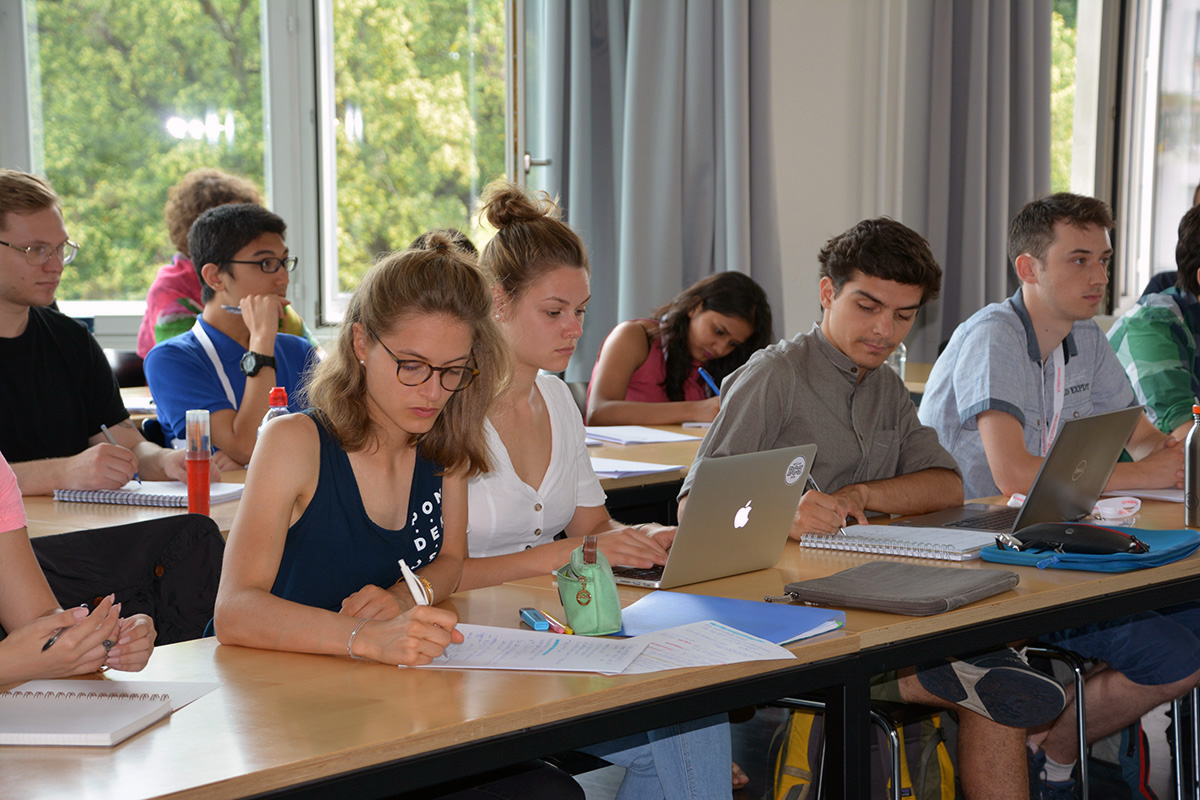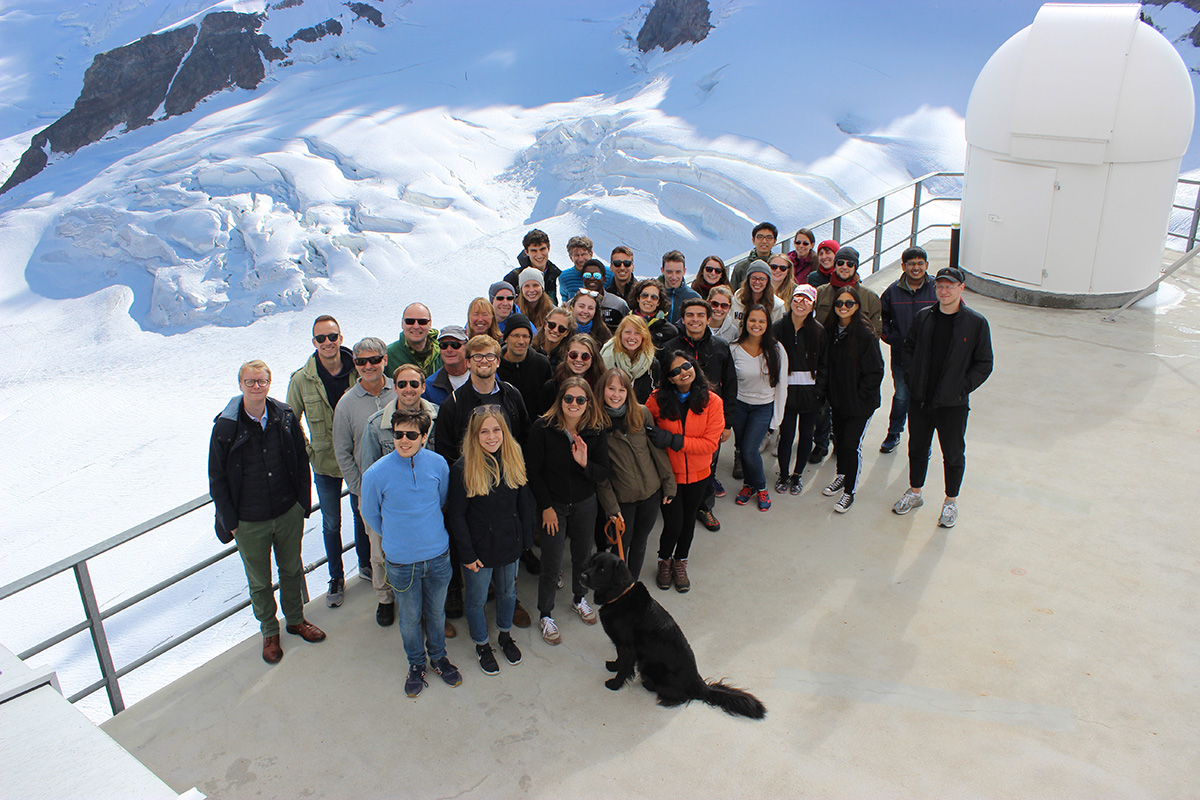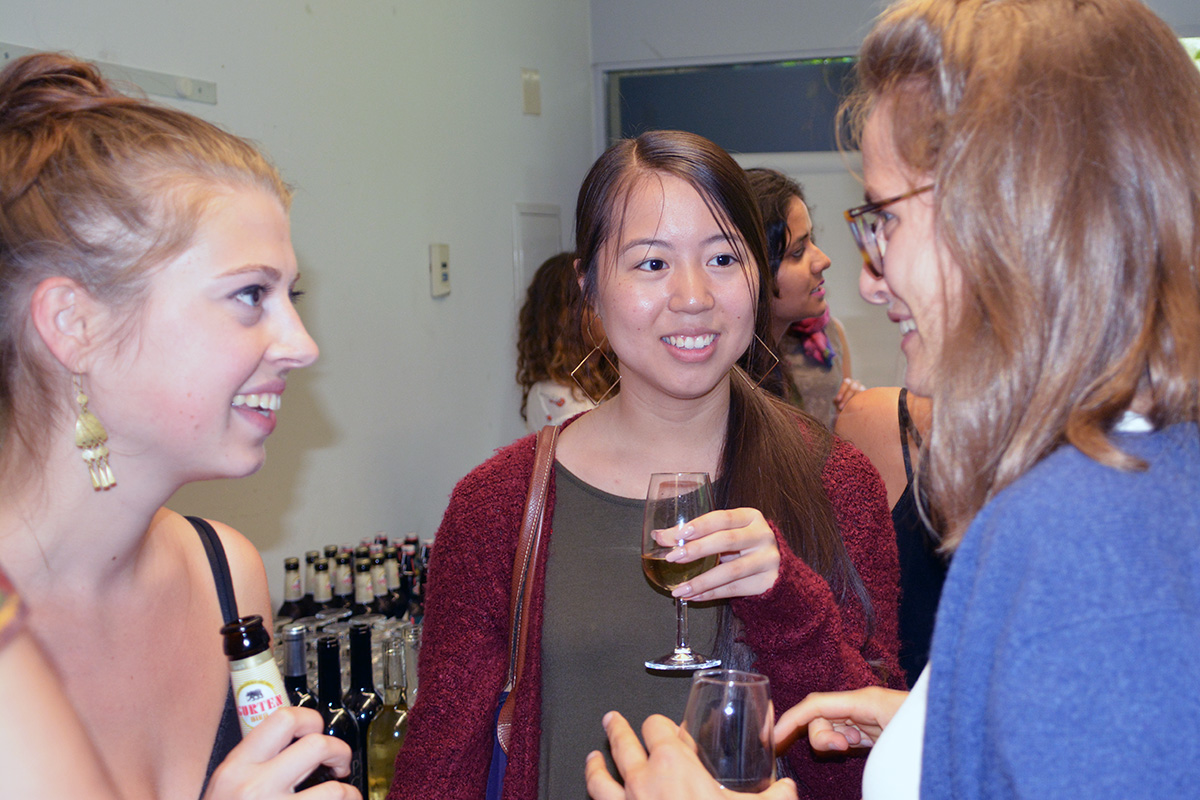The heat is on in climate change summer school
An undergraduate summer school on climate change brought students from eleven nations to the University of Bern from 6-17 August. They were inspired by the interdisciplinary nature of the program and impressed with the high quality of the lectures. Further highlights included a swim in the Aare and a visit to the Jungfraujoch research station.
Even in the coffee break discussions continue unabated. "Who is China?", calls a delegate excitedly to the group. And an envoy asks the man sitting opposite him in the UniS cafeteria, quiet now during the summer lull: "Are you in, as the EU, with two billion?" No one was in a holiday mood at the International Bachelor Summer School for Climate Change Research. The 32 participants were full of enthusiasm not only during negotiations at the simulated climate conference. "We are very pleased, the students were all extremely motivated", says Christoph Raible, Professor of Climate Dynamics, drawing a postive balance. And he continues: "We were dealing with excellent scholars; our Bernese PhD students, who were leading the workshops, were quite challenged at times."

International profile for Bern
Around three times the number of students who were eventually accepted onto the course showed an interest in participating in the bachelor summer school, a study program premiere in Bern. The title of the course, which was organised by the Oeschger Centre for Climate Change Research and the World Trade Institute, and directed at fourth semester students and above, was "Confronting Climate Change – from Science to Policy". The objective of the climate summer school was not least to raise the international profile of the University of Bern: students from abroad should get to know and come to appreciate the university at bachelor level, so that later in their academic career they might return to the place where they have spent a memorable time.

Interdisciplinary exchange
The strategy could prove successful. Certainly some participants expressed an interest in the master’s program offered by the university’s Graduate School of Climate Sciences, particularly because of its interdisciplinary approach. But also in general the students were impressed with the multidisciplinary character of the summer school. Oscar Zollmann, for example, who is studying economics in Edinburgh, said: "During my studies I’ve often had conversations with people from other disciplines, but it was quite difficult. The climate summer school was therefore an incredible opportunity to meet people from around the world and from various disciplines, and to put our heads together to discuss the issue of climate change."
Demanding study program
The program by the Oeschger Centre focused on a multidisciplinary exchange. In selecting the particpants, the organisers of the summer school took care to ensure that one third of students came from the natural sciences, law, and the social and economic sciences respectively. "Compared to other summer schools our students were very challenged, because they had to deal with subject matter that they were not familiar with", Lenka Fehrenbach from the university’s Vice-Rectorate for Development explained. "Many participants confirmed that they found the challenge very rewarding."

For example, Arisa Barcinas from the island of Guam, who is studying environmental sciences at the University of Hawaii. Arisa was able to travel to Switzerland thanks to support from the ThinkSwiss scholarship scheme. "It’s very intense and challenging", she said after a lecture on international trade law and climate governance. Living on a Pacific island, Arisa is directly affected by the consequences of climate change and therefore sees her future career in the environment sector. "I now no longer only see my future in the field of environmental science, but could also imagine working in other areas such as policy-making or the economic sector. The summer school in Bern has aroused my interest in lots of other areas and shown me other possibilities for my professional future."
THE INTERNATIONAL BACHELOR SUMMER SCHOOL FOR CLIMATE CHANGE RESEARCH
The summer school was organised jointly by the Oeschger Centre for Climate Change Research (OCCR) and the World Trade Institute (WTI) on the topic "Confronting Climate Change – from Science to Policy". Its objective was to bring together highly-motivated and open-minded bachelor students interested in climate change research. The program was aimed at students from the natural sciences, law, and social and economic sciences, from the fourth semester and above.
THE OESCHGER CENTRE FOR CLIMATE CHANGE RESEARCH (OCCR)
The Oeschger Centre is the University of Bern’s competence centre for climate research. It was founded in summer 2007 and is named after Hans Oeschger (1927-1998), a pioneer of modern climate research who worked in Bern. At the Oeschger Centre researchers from nine institutes and four faculties work together on a disciplinary and interdisciplinary basis at the forefront of climate science. This multidisciplinary approach, encompassing the natural sciences, humanities, social sciences, economics and law, provides the best prerequisite for addressing the issue of global climate change.
THE WORLD TRADE INSTITUTE (WTI)
The World Trade Institute (WTI), an interdisciplinary centre at the University of Bern, is one of the global leading academic institutions dedicated to the field of international trade. It combines legal, economic and political aspects of international trade and investment regulation in research, teaching, consulting services and technical co-operation. The WTI was founded in 1999 to bridge a gap in tertiary education on world trade regulation. From 2005 to 2017 it was the home institution of the Swiss National Science Foundation’s National Centre of Competence in Research on Trade Regulation.
ABOUT THE AUTHOR
Kaspar Meuli is a journalist and PR advisor. He is responsible for communication at the Oeschger Centre for Climate Change Research.